Salamanca Tech discusses quantum computing and its strategic nature
Quantum computing will revolutionize a wide range of fields including computing, economics and finance, along with medicine, chemistry, energy, logistics and cybersecurity. It is a promising technology and this was made clear by the experts who met at the conference "Salamanca Tech. Quantum Technology", organized by the AIR Institute and inaugurated by the Councilor for Economic Promotion, Commerce, Markets and Youth, Pedro Martínez Córdoba; the Vice-Rector for Academic Planning of the University of Salamanca, David Díez Martín; and the President of the AIR Institute and Director of the BISITE Research Group, Juan Manuel Corchado.
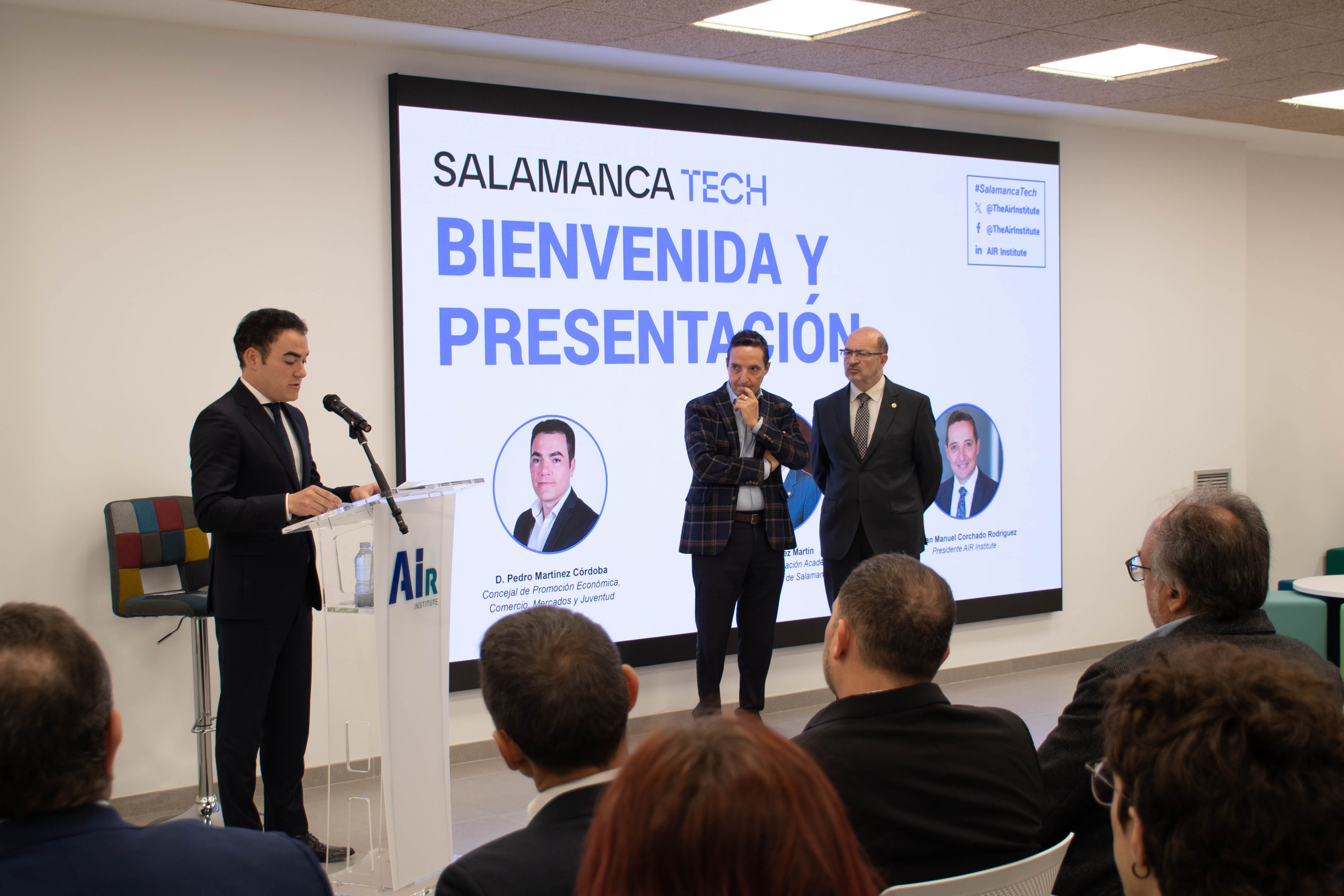
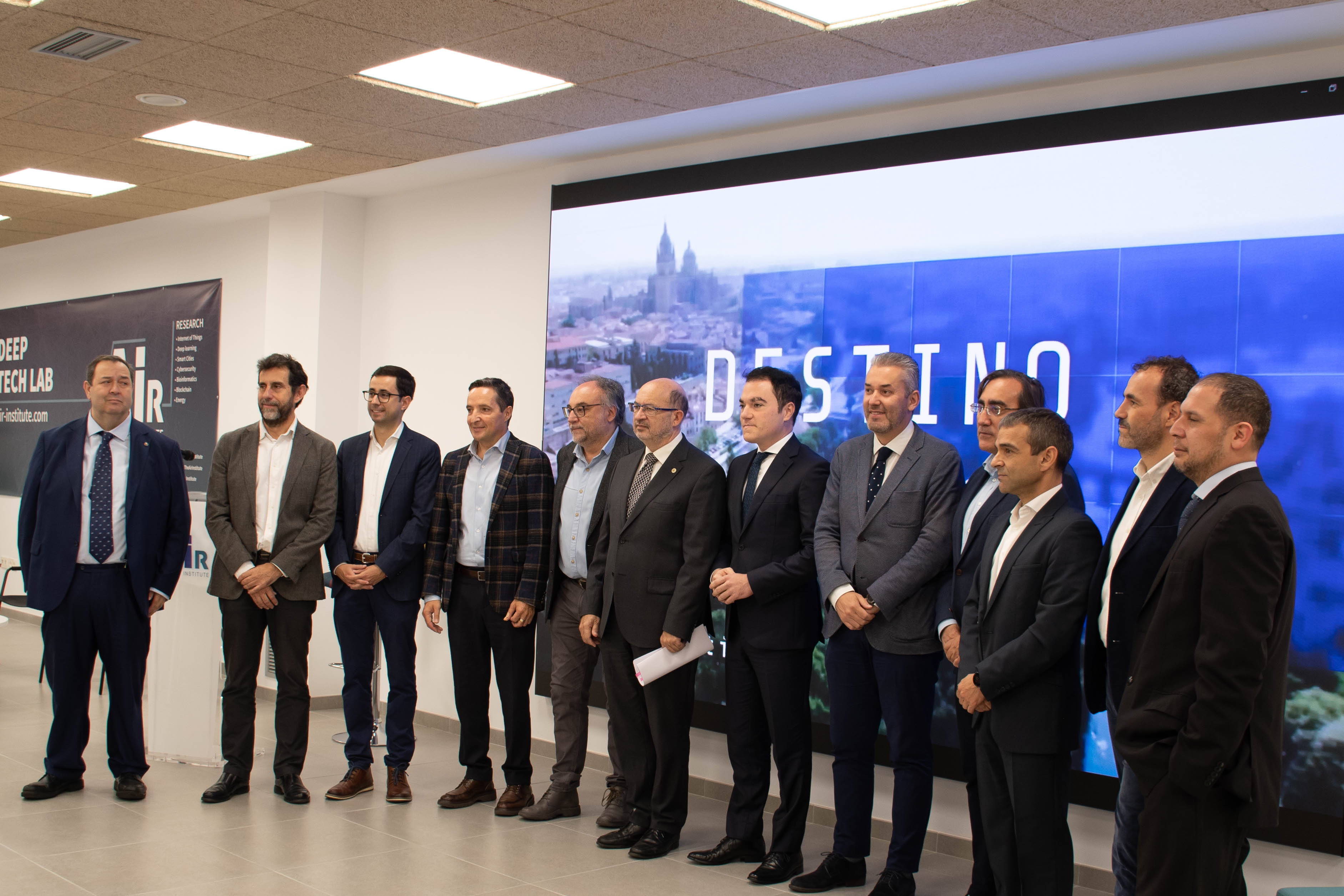
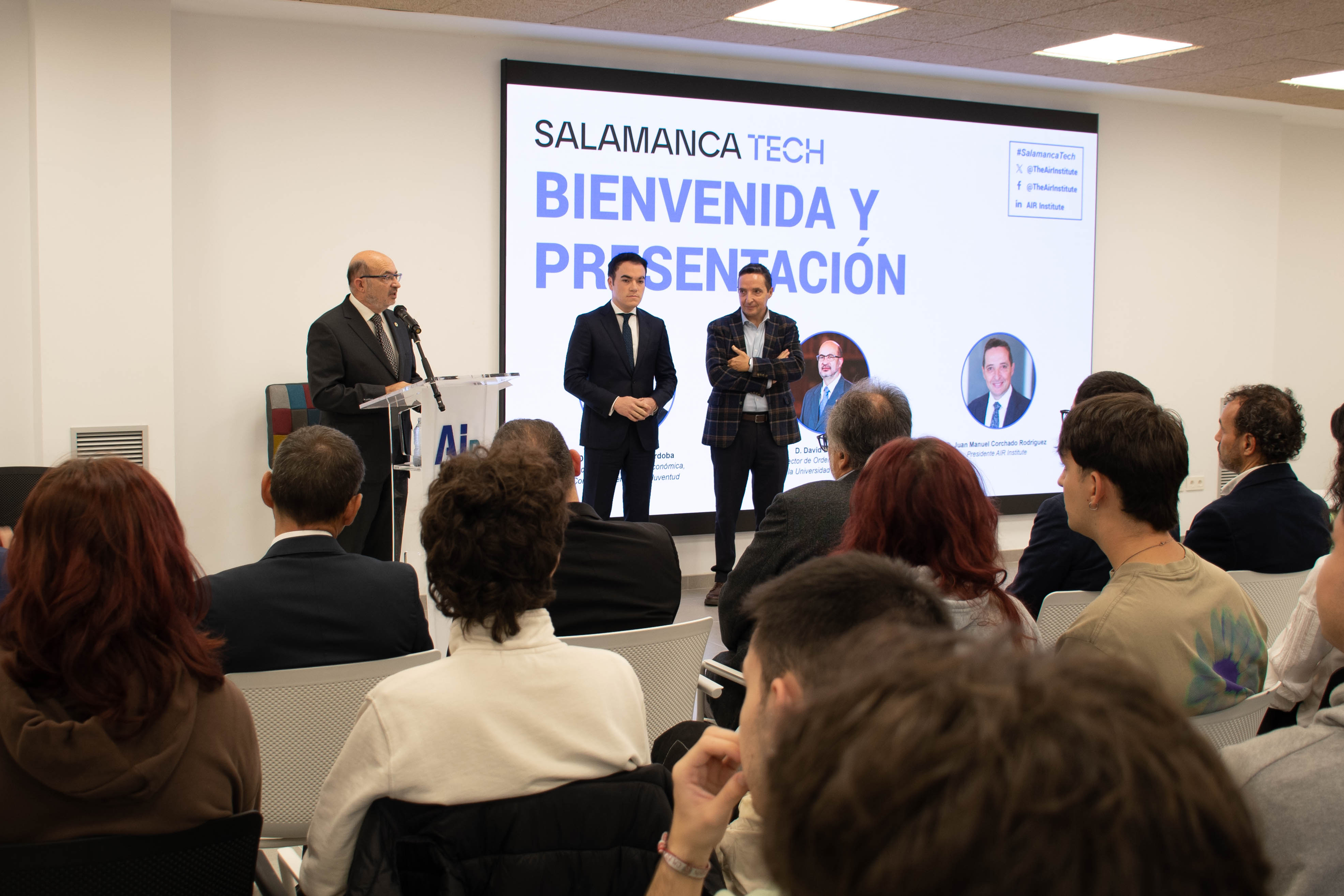
Last year, the BISITE Research Group and the AIR Institute launched a novel quantum economics laboratory, QETEL. The main objective of this lab is to identify the main drivers of growth and innovation in digital economy and to explore the role of different platforms and networks in shaping the digital economy. It also aims to assess the regulatory and policy implications of the digital transformation of the economy from a technical as well as a functional and scientific point of view. In the era of the digital economy, emerging technologies such as blockchain, artificial intelligence and tokenization are redefining the way we understand commerce, property and transactions. In this regard, Javier Parra, coordinator of Quantum Economics & Technology Experience Lab and Professor at the University of Salamanca, explained that "Through QETEL we seek to reaffirm the importance of providing an invaluable resource in the search for a deeper and more accurate understanding of economic and financial systems, in addition to the importance for other sciences. Quantum computing research and developments will have the potential to transform the way we address economic, financial and social challenges of the 21st century, providing new tools and perspectives for decision making".
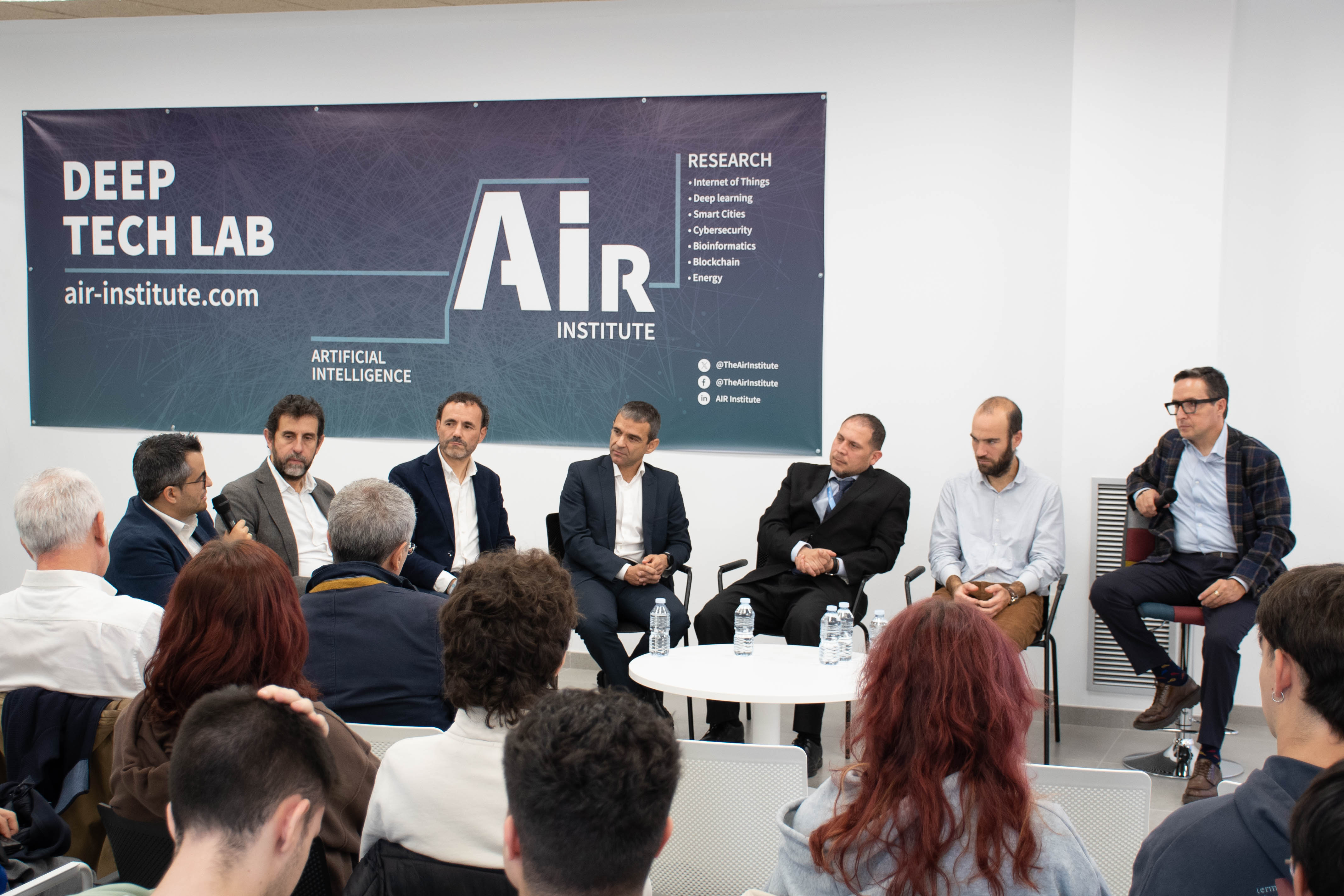
Pablo Cabricano Sánchez, Head of Quantum at NTT Data Spain, who opened the conference with a lecture on the practical applications of quantum computing, commented that the development of traditional computing has been exponential and has improved decade by decade until it has reached its current level. As part of his speech, he presented use cases applied to different sectors such as finance, pharmaceuticals or transport and logistics, highlighting the way in which companies such as Caixabank, Pfizer, Vueling or Ford are using quantum technology to optimize their processes and make faster and more efficient decisions.
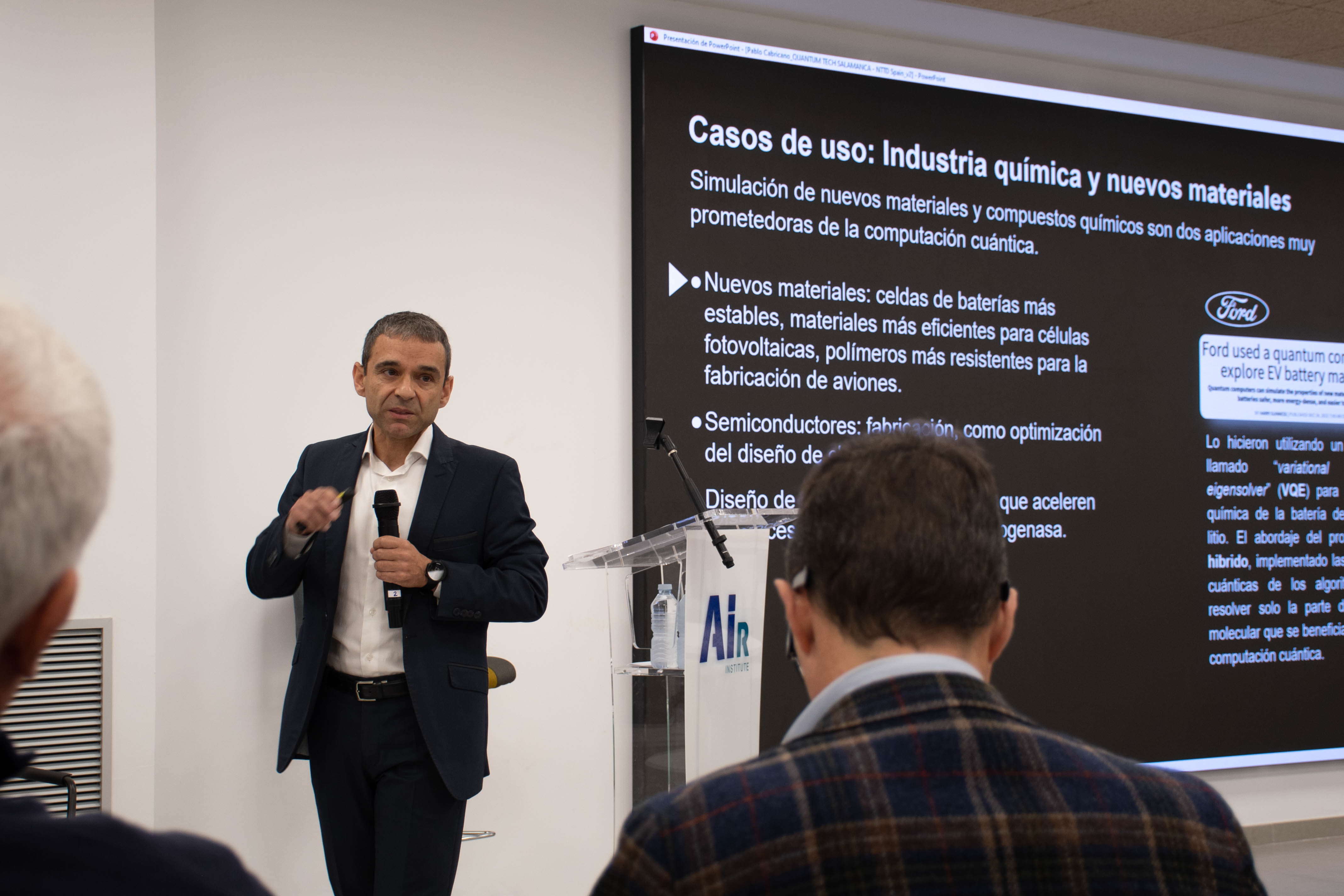
The analysis of financial problems requires the use of a large amount of data, which is why, in the era of Big Data, traditional computational methods are often insufficient to obtain results in the desired time. This was explained by Guillermo Rivas, who recently joined the AIR Institute and gave the lecture "Quantum Technology for Finance". In his presentation, the young specialist in Theoretical Physics pointed towards the potential solutions offered by quantum computing, especially when its potential is combined with that of artificial intelligence. Guillermo analyzed specific quantum technology solutions available today, as well as their prospects in the medium and long term. "Financial problems are complex because they depend on the human being's free will, and that is why quantum computing is needed," said Guillermo Rivas.
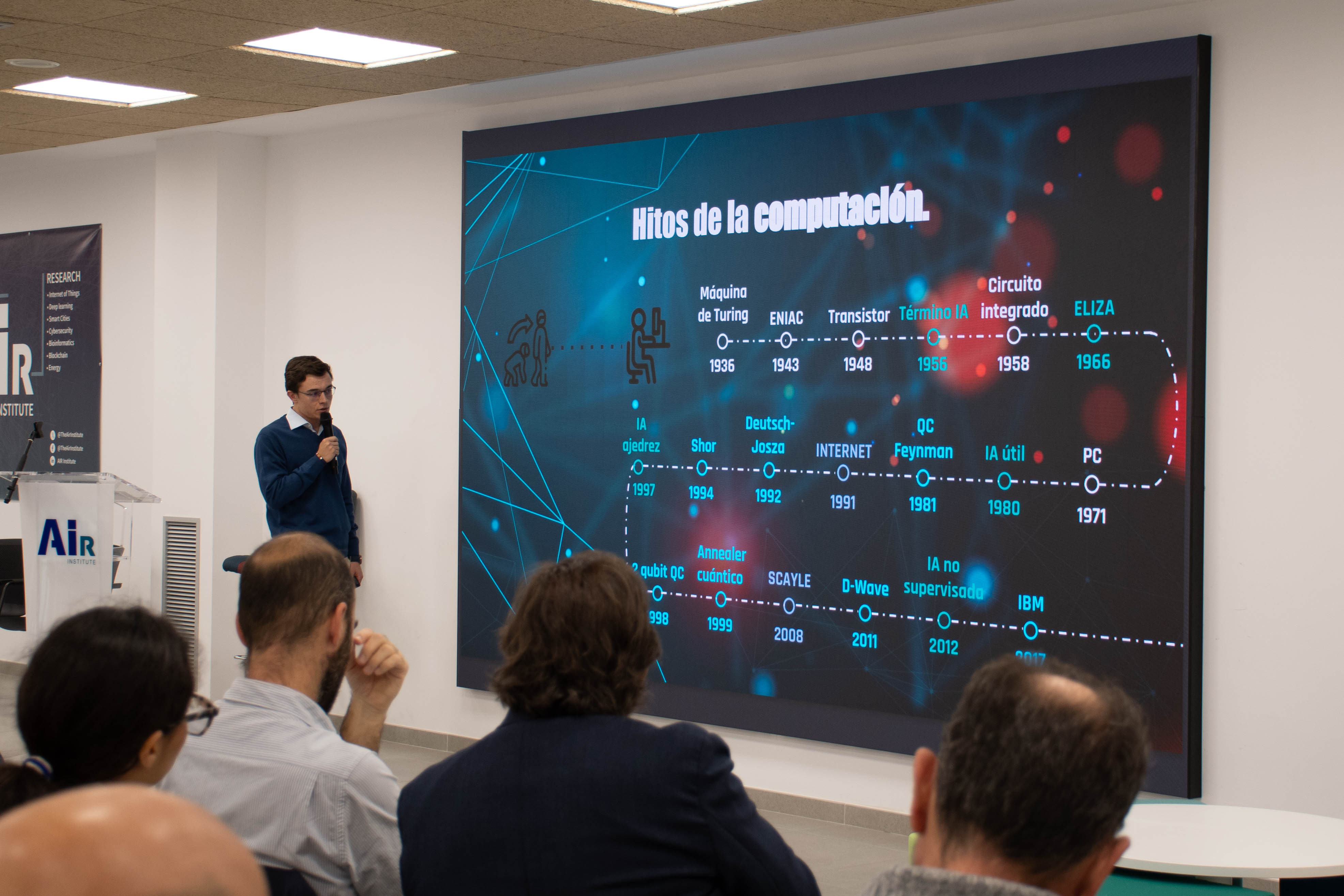
In addition, Juan Manuel Corchado moderated the roundtable "Technology, Science and Engineering", in which, together with Pablo Cabricano, Vicente Matellán Olivera, General Director of the Castilla y León Supercomputing Center Foundation (SCAYLE); Juan Ignacio Benito Fiz, Manager in RPA and Data at NTT Data; Kevin Corella Nieto, Centers Service Leader for Project Development/AI & Quantum Machine Learning Services at NTT Data; Manuel Pino García, Postdoc at the Department of Fundamental Physics in the Faculty of Sciences of the University of Salamanca; and Javier Parra Domínguez, Coordinator of QETEL.
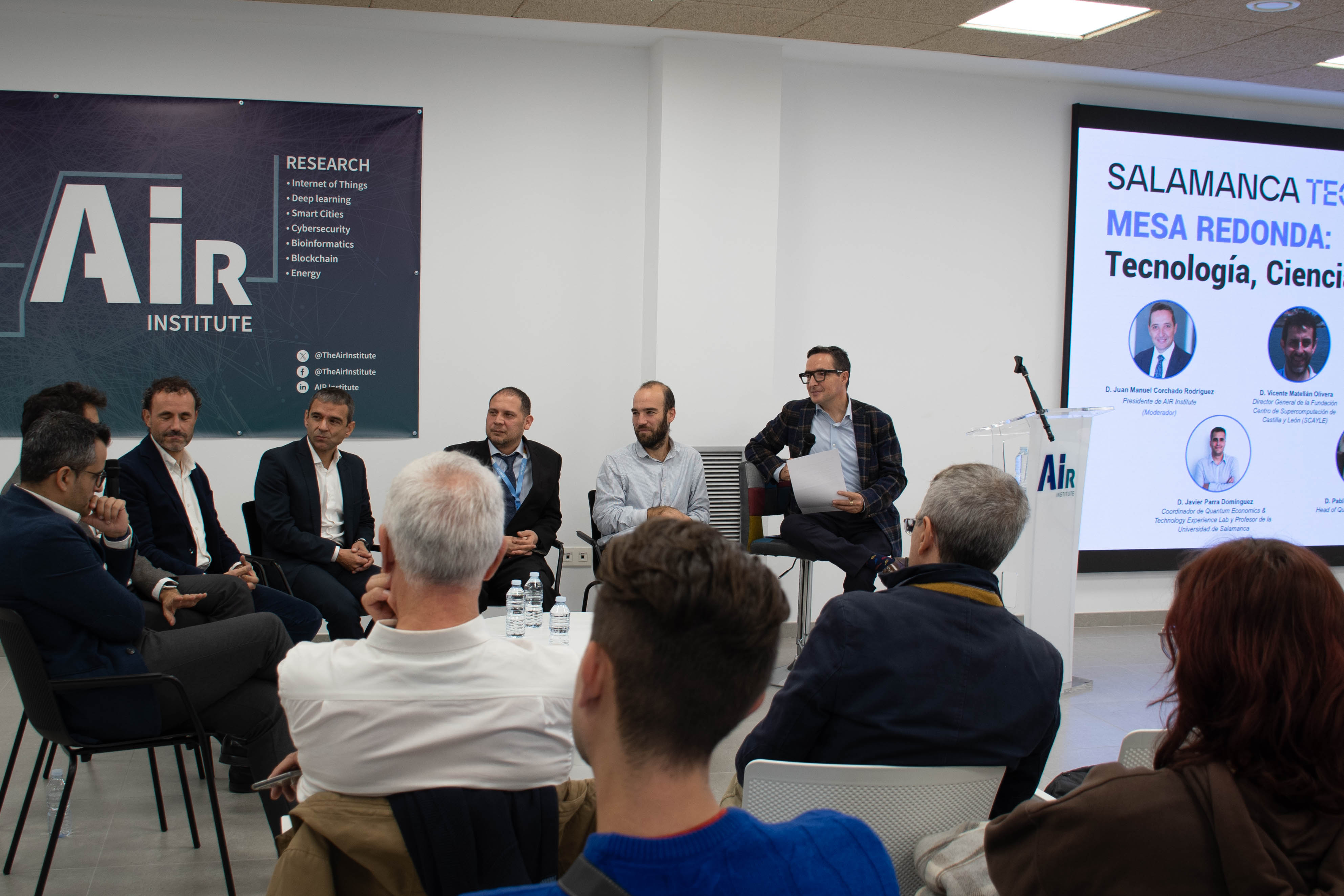
Vicente Matellán has underscored the services that are already offered at the Supercompuing Center of Castilla y León, such as quantum emulation, the optic fiber network for the universities form the region; a quantum communications plan of the Community. Metallán assured that quantum computing will not be necessary to solve all the processes, only some specific ones. Nevertheless, he has urged software companies to “move towards quantum computing”. In this regards, Kevin Corella has acknowledged that “getting started in the world of quantum computing is indeed gratifying”, and he has recommended the attendees, among whom many were students from the Faculty of Sciences of the University of Salamanca, “to attain a solid basis in Mathematics, and become familiar with mechanics and learn programming languages, be it with simulators, as well as study algorithms”.
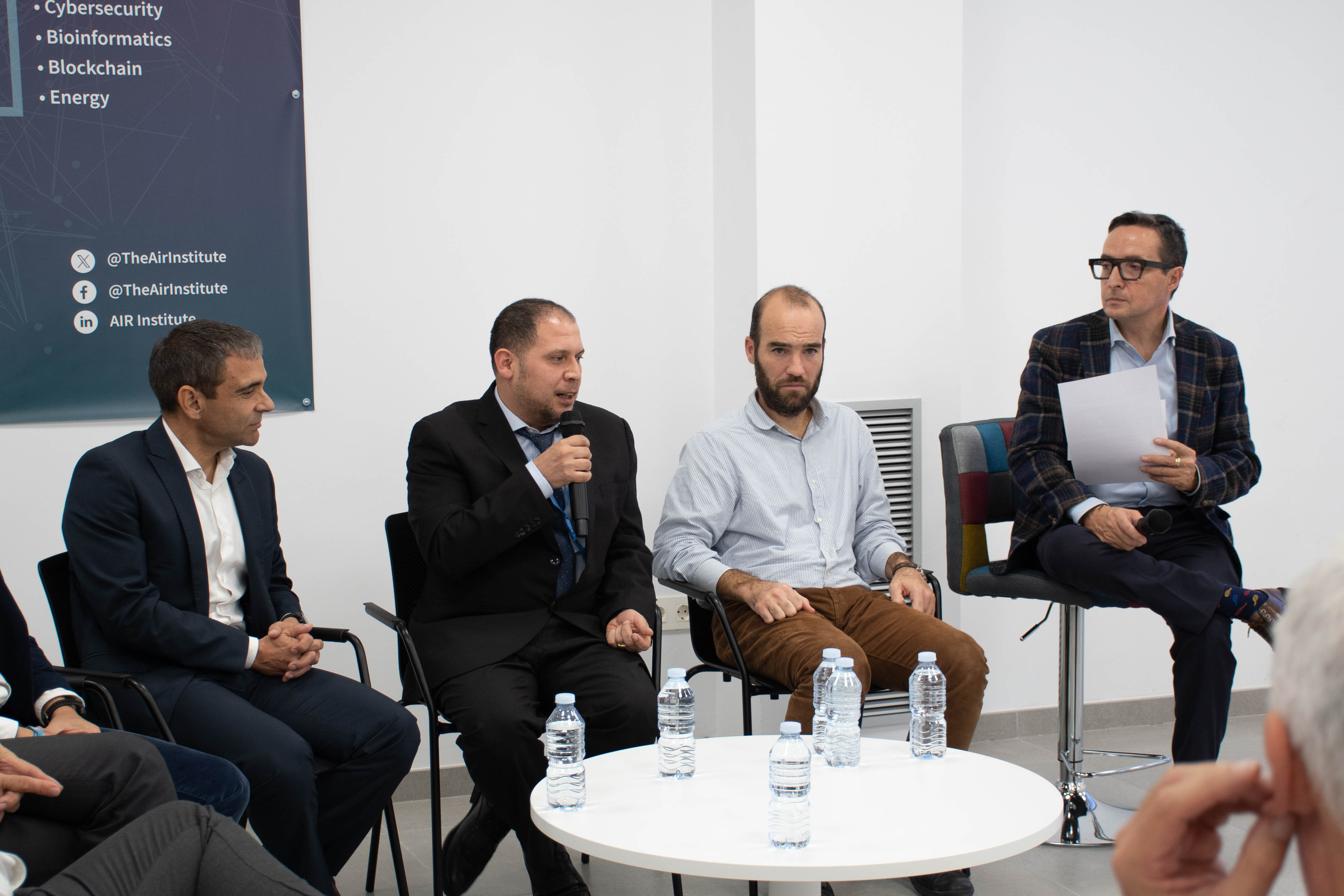
For his part, Manuel Pino highlighted the need to gain an in-depth knowledge of hardware to apply quantum processes; a statement that was also supported by Pablo Cabricano, who explained that at NTT Data “we have an initiative called “Quantum Ready” which involved being prepared for the moment in which a technology booms”. Juan Ignacio Benito has emphasized the importance of this type of seminars and dissemination events “so that people from the outside can also understand what this is about and why it’s important to have the right infrastructure and well-prepared professionals”. Juan Ignacio has affirmed that “it is comforting that this knowledge can be showcased in Salamanca because it is both a challenge and a big opportunity”.
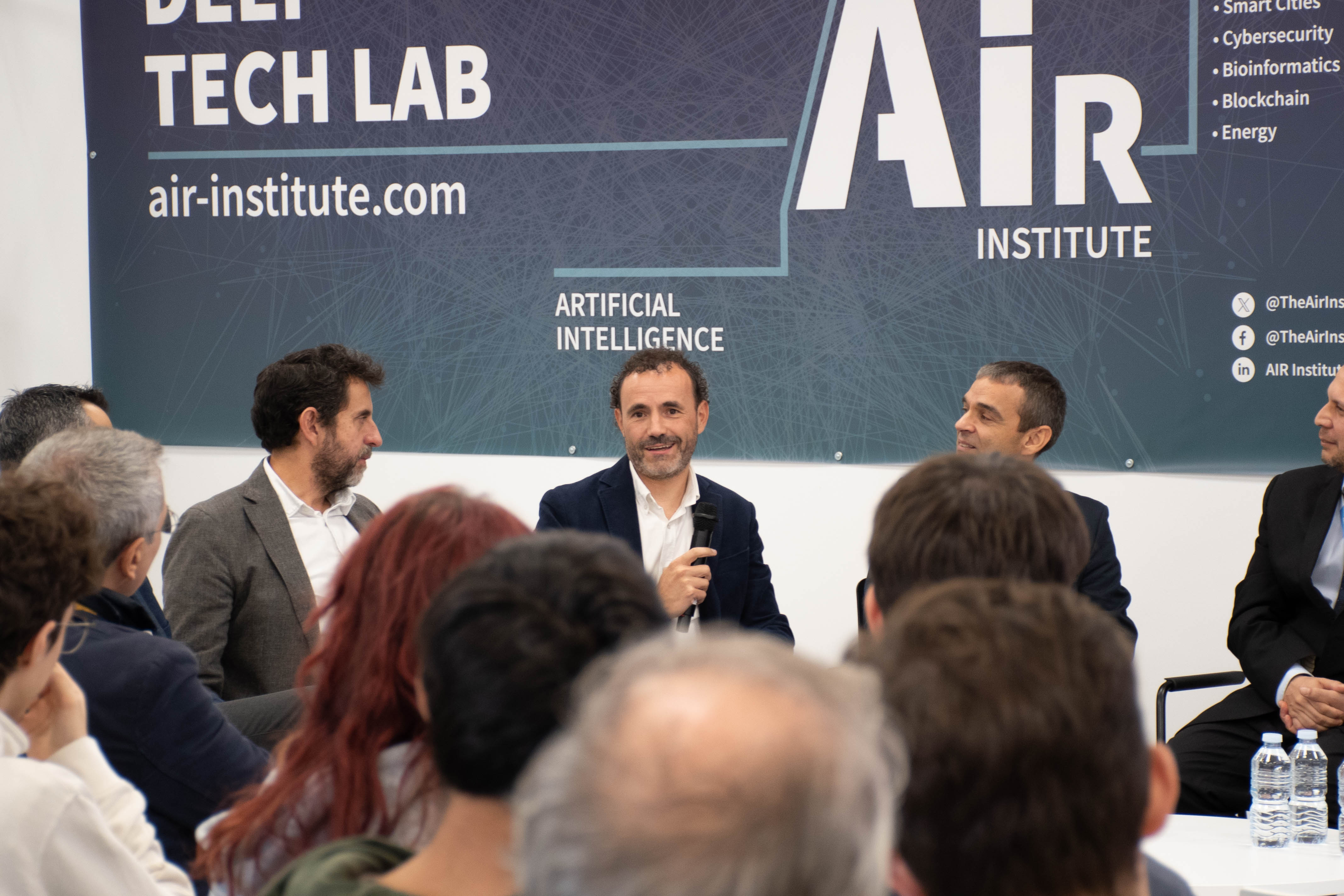
Juan Manuel Corchado has agreed with the speakers on the fact that “quantum computing is soon going to boom” and he has acknowledged that AIR Institute strives to be prepared to lead the revolution that will entail. In fact, the Institute has been taking its first steps towards starting a project in the field of cybersecurity.
This event is an addition to the events that have been organized in the last five months as drivers of technological development, under the Salamanca Tech brand, dedicated to the digital industry, smart tourism, technological innovation in the primary sector and the aeronautics industry.